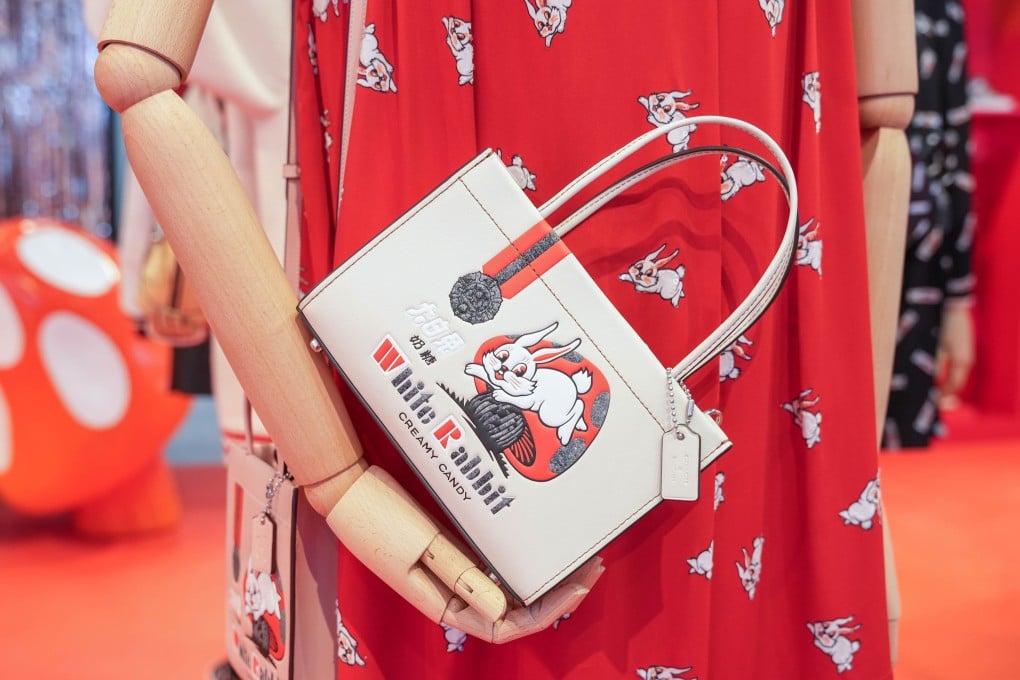Global brands think local as they tie up with state-owned entities to woo customers with China-centric products
- US leather goods maker Coach has tied up with the state-owned Chinese company behind White Rabbit candy to launch a range of products aimed at the local market
- Ikea has launched Fossta, a series of 32 products covering porcelain, textiles and home decorations for the Year of the Rabbit in 2023

Foreign companies are increasingly working with Chinese brands and incorporating cultural elements into their products, but some have gone a step further, joining hands with state-owned enterprises to target the nation’s 1.4 billion consumers.
At the ongoing China International Import Expo (CIIE) in Shanghai, companies such as US leather goods maker Coach, Swedish furniture brand Ikea, Danish toymaker Lego and Austrian jewellery brand Swarovski showcased their latest or upcoming local collections for visitors.
Coach, owned by New York-listed Tapestry, has partnered with the state-owned Chinese company behind White Rabbit candy. Coach is collaborating with the 63-year-old brand to launch its upcoming collection of apparel, handbags, footwear and children’s wear specifically for the mainland. The collection will be launched on November 18 across China.
“Which brand do you know better, White Rabbit or Coach?” Wu Jian, the president and party secretary of state-owned Shanghai Maling Aquarius, rhetorically asked reporters present at Tapestry’s CIIE booth during a press conference on Monday.

When the reporters, mostly from the Chinese media, chorused White Rabbit in unison, Wu said, “this is because we have the appeal to have them [Coach] approach us despite all difficulties”.